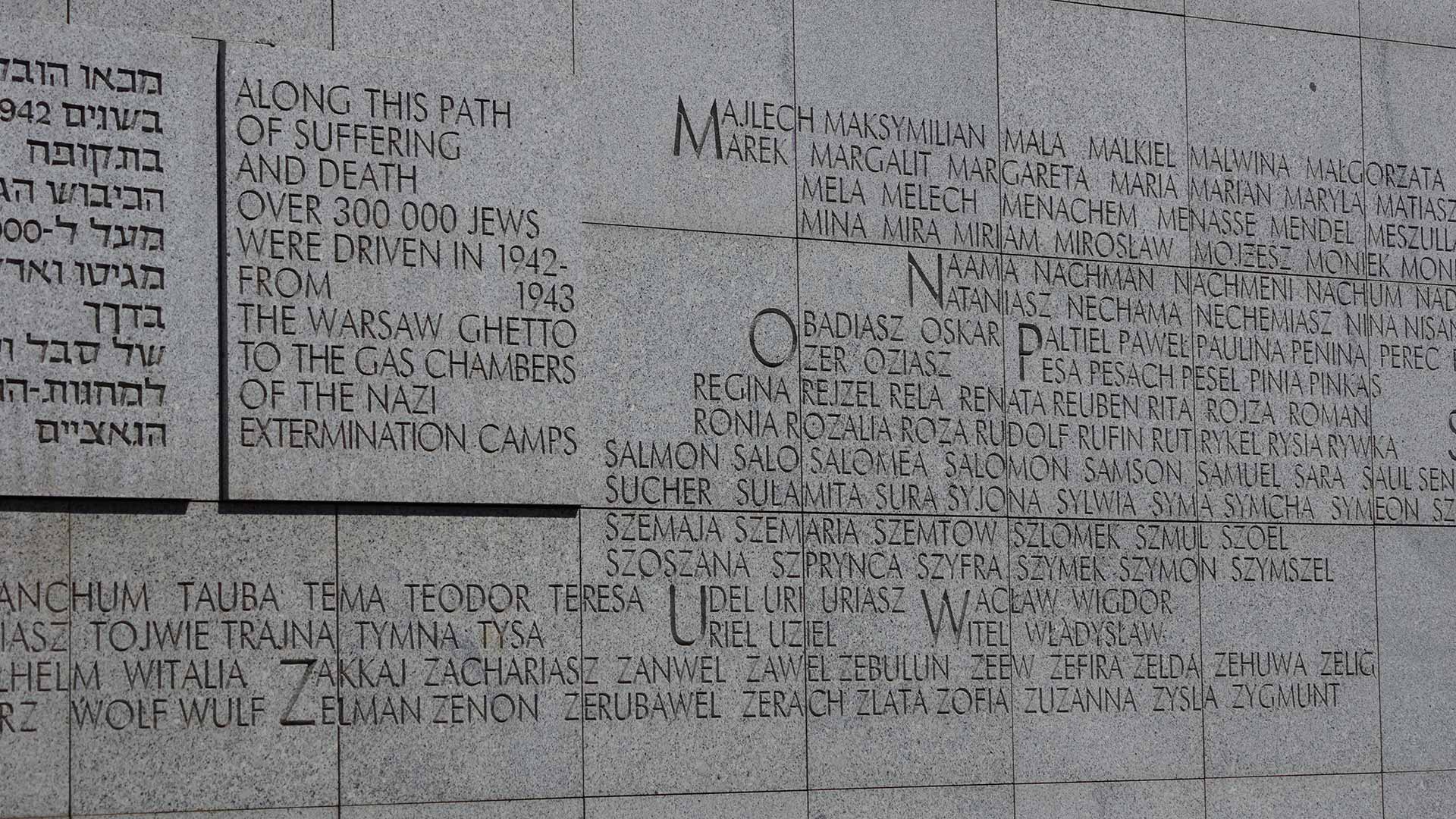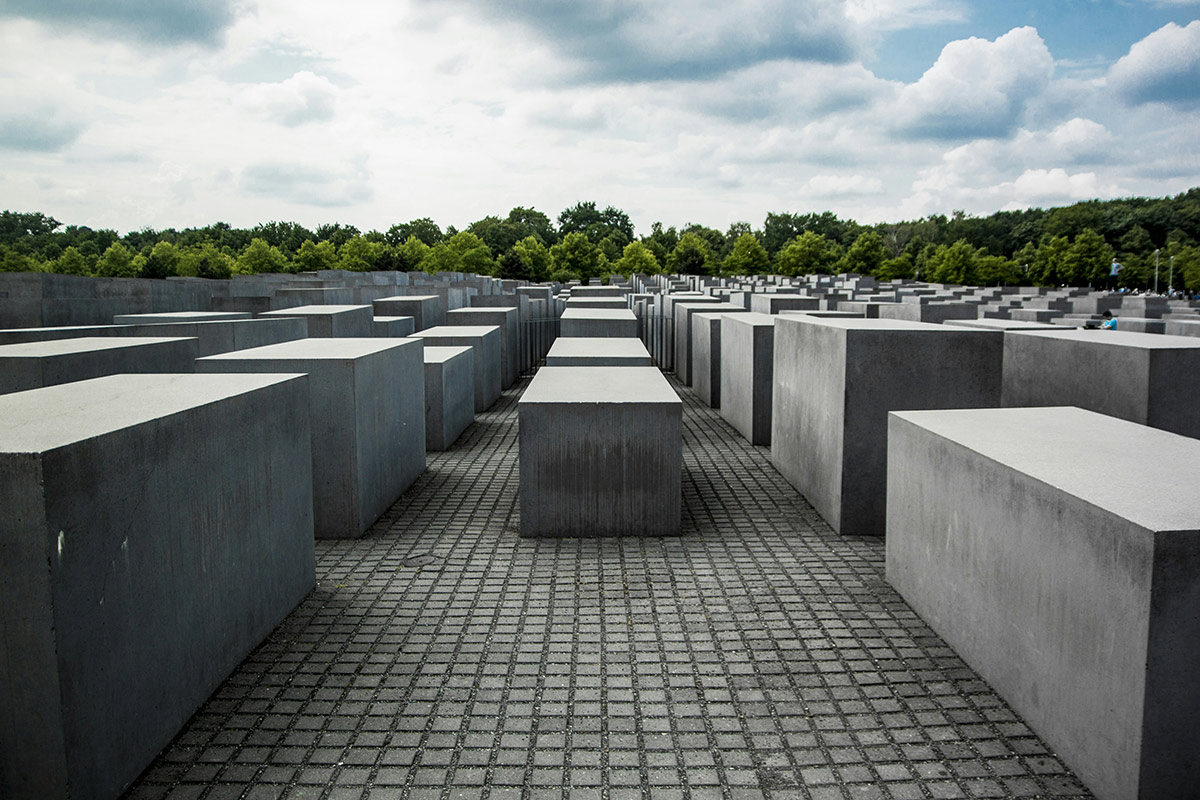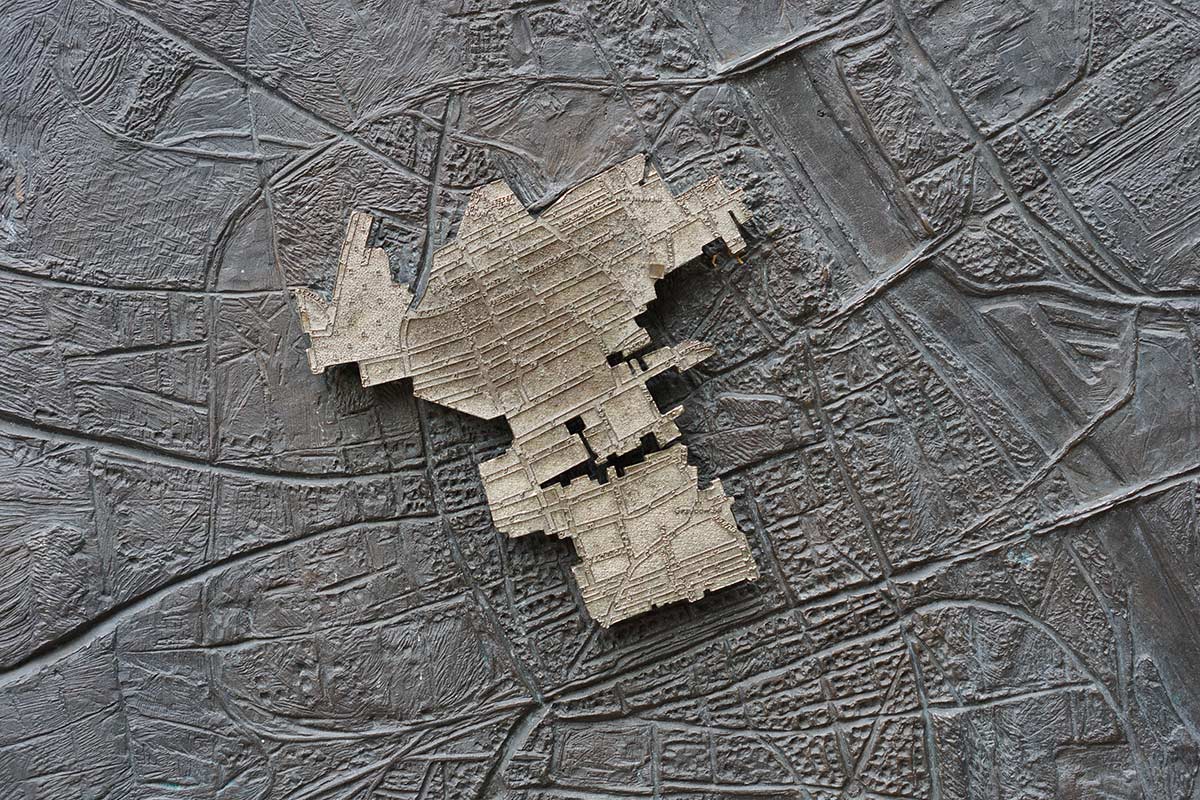Holocaust and Genocide Studies
The Minor in Holocaust and Genocide Studies invites students to explore the historical, theological, political, and cultural roots of antisemitism, racism, and other forms of extreme hatred that lead to genocide and the mass annihilation of peoples. Through an interdisciplinary approach that considers generational effects of such traumas, students will engage with photographic, artistic, musical, literary, theatrical, and cinematic artifacts to bear witness to the Shoah, the Native American Genocide, and the Rwandan Genocide, among other genocides. This program not only seeks to remember these atrocities but also aims to empower students with the knowledge and strategies to intervene and resist emerging patterns of destruction.
Why Study Holocaust and Genocide Studies at St. Thomas?
Students in the Holocaust and Genocide Studies minor will build critical analytical skills, gain extensive historical knowledge, and develop a deep understanding of the causes and impacts of mass violence. They will learn to critically assess historical and contemporary issues related to hatred and genocide and develop strategies for intervention and resistance. This comprehensive skill set will prepare students to contribute meaningfully to scholarly inquiry, educational outreach, and the promotion of democratic values in society.
Program Overview
Course Requirements
Four-Year Plan
The minor consists of 16 credits, as follows:
4 Credits: Integrative Courses
Students must take one of the following 4-credit integrative courses:
- HIST 227: Global History of Genocide and Ethnic Cleansing in the Twentieth Century (4 cr.)
- THEO 300: Signature Work: Nazism and Apartheid (4 cr.)
12 Additional Credits
Students may choose any combination of 12 additional credits from the following list:
- ARTH 297: Topics: Art & Trauma: Histories and Healing (NOTE: only this topic under ARTH 297 counts toward this minor)
- FILM 320: Memory and Trauma in Film
- HIST 227: Global History of Genocide and Ethnic Cleansing in the Twentieth Century (NOTE: students who take THEO 300 as the integrative course may take HIST 227 toward the 12 additional credits required for the minor)
- HIST 335: Nazi Germany and the Holocaust
- LNGS 370: The Holocaust in Literature, Film and Visual Culture
- POLS 350: Comparative Politics of Europe
- POLS 354: Politics of Post-Soviet States
- POLS 424/IDSC 481: Senior Seminar - International Relations
- THEO 223: Belief: Evil & Suffering (NOTE: only this topic under THEO 223 counts toward this minor)
- THEO 227: Contexts: Nazism and Apartheid —or—
THEO 300: Signature Work — Nazism and Apartheid
(NOTE:students who take HIST 227 as the integrative course may take THEO 227 or THEO 300 toward the 12 additional credits required for the minor. Students cannot take both THEO 227 and THEO 300.)
Please make note of pre-requisites for all classes.
Degrees Awarded
Course Requirements
Course Requirements
Four-Year Plan
Four-Year Plan
The minor consists of 16 credits, as follows:
4 Credits: Integrative Courses
Students must take one of the following 4-credit integrative courses:
- HIST 227: Global History of Genocide and Ethnic Cleansing in the Twentieth Century (4 cr.)
- THEO 300: Signature Work: Nazism and Apartheid (4 cr.)
12 Additional Credits
Students may choose any combination of 12 additional credits from the following list:
- ARTH 297: Topics: Art & Trauma: Histories and Healing (NOTE: only this topic under ARTH 297 counts toward this minor)
- FILM 320: Memory and Trauma in Film
- HIST 227: Global History of Genocide and Ethnic Cleansing in the Twentieth Century (NOTE: students who take THEO 300 as the integrative course may take HIST 227 toward the 12 additional credits required for the minor)
- HIST 335: Nazi Germany and the Holocaust
- LNGS 370: The Holocaust in Literature, Film and Visual Culture
- POLS 350: Comparative Politics of Europe
- POLS 354: Politics of Post-Soviet States
- POLS 424/IDSC 481: Senior Seminar - International Relations
- THEO 223: Belief: Evil & Suffering (NOTE: only this topic under THEO 223 counts toward this minor)
- THEO 227: Contexts: Nazism and Apartheid —or—
THEO 300: Signature Work — Nazism and Apartheid
(NOTE:students who take HIST 227 as the integrative course may take THEO 227 or THEO 300 toward the 12 additional credits required for the minor. Students cannot take both THEO 227 and THEO 300.)
Please make note of pre-requisites for all classes.
Degrees Awarded
Degrees Awarded
Contact
Develop Skills to Make a Difference

Career Paths
Graduates of the Holocaust and Genocide Studies program will be well-prepared for careers in a wide variety of settings, including:
- Education
- Human rights advocacy and public policy
- Civic leadership
- NGOs focused on social justice and conflict mediation
- Historical research and Memorial preservation
- Museum education, curation, and archives
- Archives and libraries
- Conflict resolution
- Graduate studies in History, Political Science, Religious Studies, Theology, and related fields
Faculty With Real Experience

Dr. Kimberly Vrudny
Dr. Vrudny is Professor of Systematic Theology and Associate Dean in the College of Arts and Sciences. She teaches in the areas of theological aesthetics, theology and the arts, and political theology.

Dr. Zsolt Nagy
Dr. Nagy is Associate Professor of History and a historian of modern Europe. He teaches of topics ranging from the Holocaust and Nazi Germany to the Soviet Union, the history of the First World War, history of Modern Europe and modern East-Central Europe.

Dr. Susanne Wagner
Dr. Wagner is Associate Professor of Modern & Classical Languages and Director of the German Program. She is a literary and cultural historian focusing on 20th century Germany with a research emphasis on National Socialism and a passion for language acquisition.
Take the Next Step
 There is more to learn about St. Thomas; including our ranking as a Best Value School by U.S. News & World Report, the many classroom and extracurricular activities that will be part of your student experience and so much more. Schedule a visit to see our beautiful campus or start your application today.
There is more to learn about St. Thomas; including our ranking as a Best Value School by U.S. News & World Report, the many classroom and extracurricular activities that will be part of your student experience and so much more. Schedule a visit to see our beautiful campus or start your application today.



